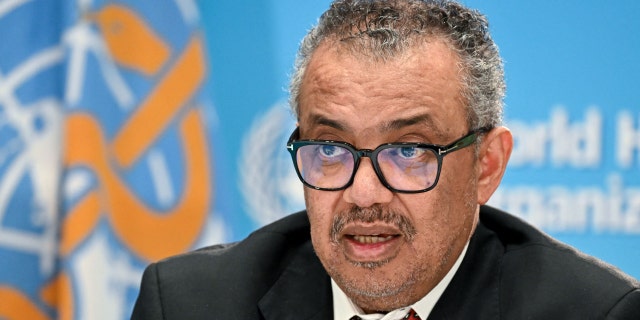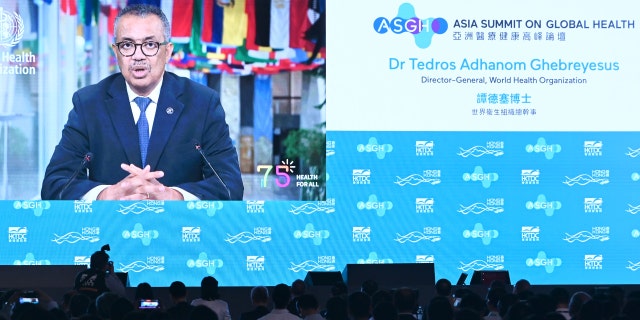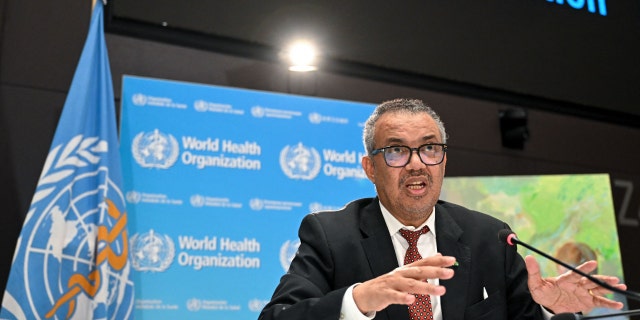
The head of the World Health Organization warned Monday the world must prepare for the next global pandemic, warning that the consequences could be even deadlier in the future.
“The threat of another variant emerging that causes new surges of disease and death remains, and the threat of another pathogen emerging with even deadlier potential remains,” WHO director-general Dr. Tedros Adhanom Ghebreyesus told a meeting of the World Health Assembly in Geneva, noting that pandemics are “far from the only threat we face.”
Tedros stressed that the international community “cannot kick this can down the road.”
“If we do not make the changes that must be made, then who will? And if we do not make them now, then when? When the next pandemic comes knocking — and it will — we must be ready to answer decisively, collectively and equitably,” he stressed.
NEW YORK DEPARTMENT OF HEALTH TO REPEAL COVID-19 VACCINE MANDATE FOR HEALTH CARE WORKERS

World Health Organization chief Dr. Tedros Adhanom Ghebreyesus speaks during a press conference on the World Health Organization’s 75th anniversary in Geneva, on April 6, 2023. (Photo by FABRICE COFFRINI/AFP via Getty Images)
Tedros said that it was encouraging and a “relief” to see life “return to normal,” although cases are still spreading, and he said the pandemic has shown that the world’s populace needs to be “better protected.”
The U.S. ended its public health emergency on May 11. Earlier in the month, the WHO officially ended the COVID-19 global health emergency.
However, while the pandemic has “been on a downward trend,” Tedros noted in a previous briefing that the virus was still “killing and changing.”

A screen shows World Health Organization chief Dr. Tedros Adhanom Ghebreyesus speaking during opening ceremony of Asia Summit on Global Health at Hong Kong Convention and Exhibition Center on May 17, 2023, in Hong Kong. (Photo by Li Zhihua/China News Service/VCG via Getty Images)
BIDEN’S ‘PANDEMIC TREATY’ WOULD SURRENDER POWER TO WHO BUREAUCRATS, HOUSE REP WARNS
Just days ago, a WHO advisory group recommended that booster shots for this year be updated to target one of the currently dominant XBB variants.
“The risk remains of new variants emerging that cause new surges in cases and deaths,” said Tedros.

World Health Organization chief Dr. Tedros Adhanom Ghebreyesus speaks during a press conference on the World Health Organization’s 75th anniversary in Geneva, on April 6, 2023. (Photo by FABRICE COFFRINI/AFP via Getty Images)
More than three years after the pandemic’s start, the virus has caused an estimated 766 million cases globally, and nearly 7 million deaths, according to the WHO Coronavirus Dashboard.
CLICK HERE TO GET THE FOX NEWS APP
Tedros said in that announcement that many mistakes were made, including a lack of coordination, equity and solidarity.
“We must promise ourselves and our children and grandchildren, that we will never make those mistakes again”, he said.
Reuters contributed to this report.

 Latest Breaking News Online News Portal
Latest Breaking News Online News Portal




